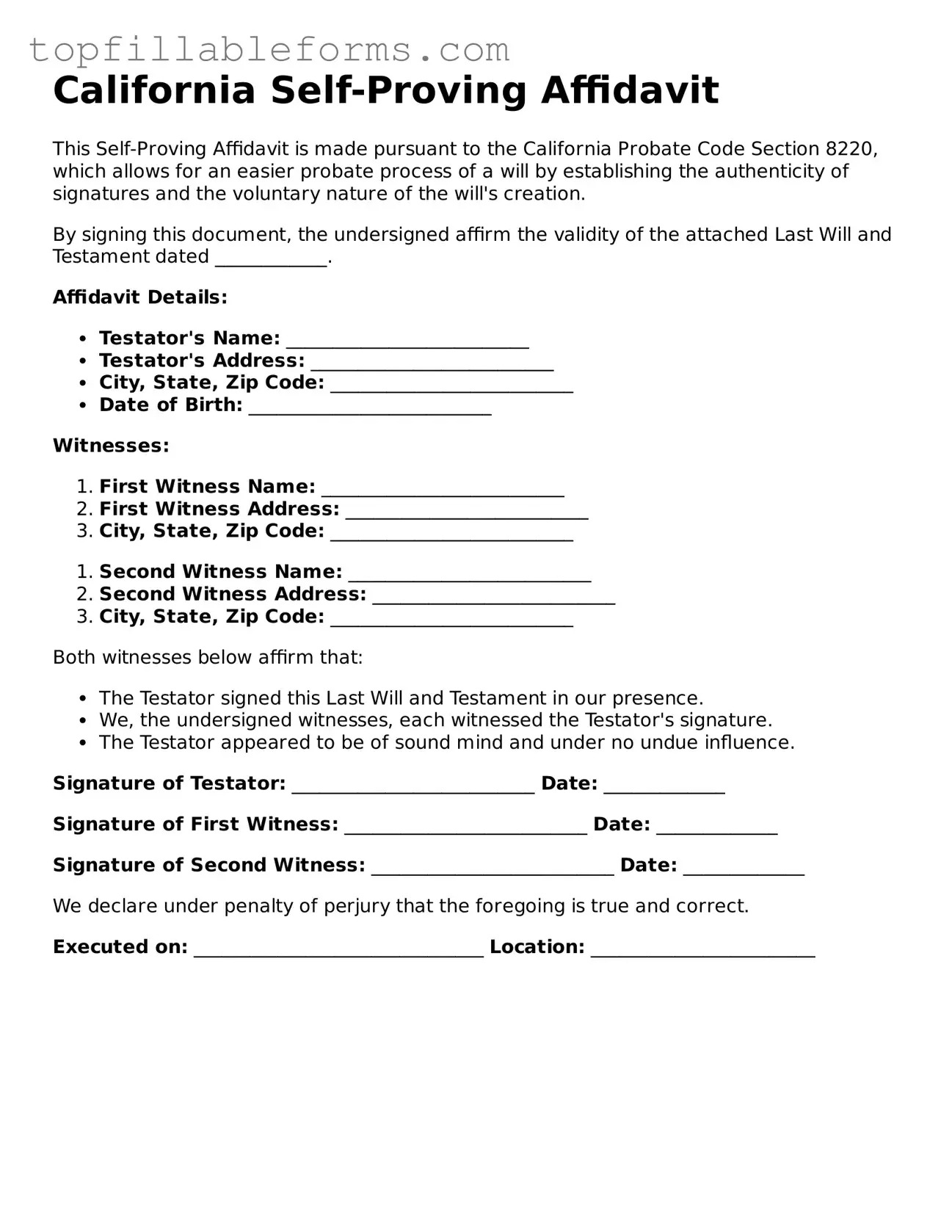Attorney-Verified Self-Proving Affidavit Template for California
The California Self-Proving Affidavit is a legal document that allows a will to be validated without the need for witnesses to testify in court. This form simplifies the probate process by confirming the authenticity of the will at the time of signing. By using this affidavit, individuals can help ensure their final wishes are respected and honored more efficiently.
Open Self-Proving Affidavit Editor Here

Attorney-Verified Self-Proving Affidavit Template for California
Open Self-Proving Affidavit Editor Here
Finish the form now and be done
Finish your Self-Proving Affidavit online by editing, saving, and downloading fast.
Open Self-Proving Affidavit Editor Here
or
▼ PDF File
